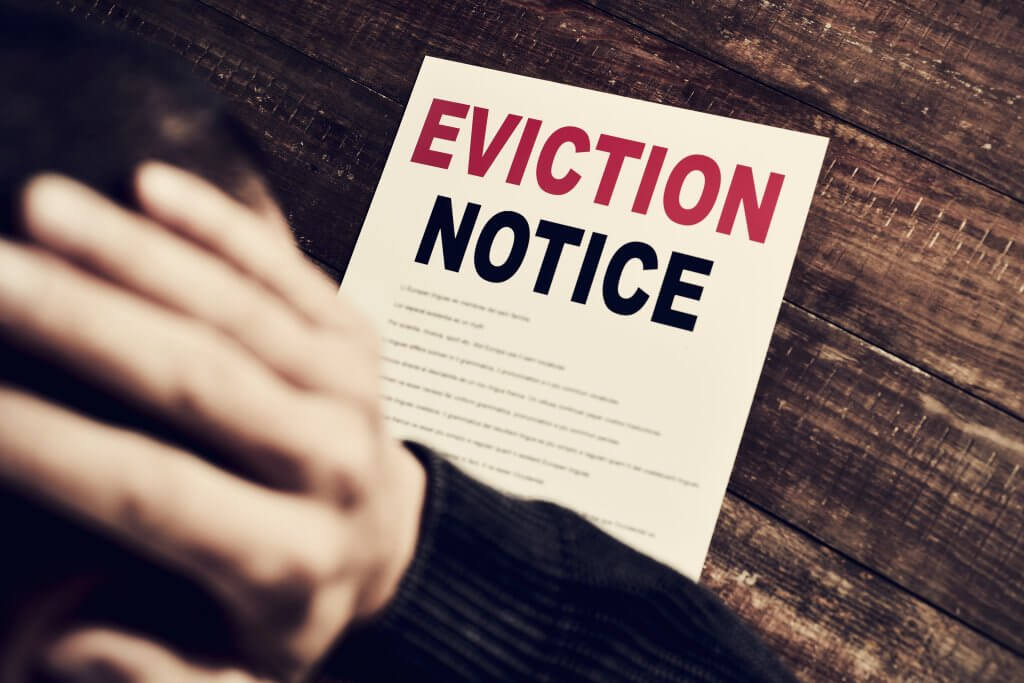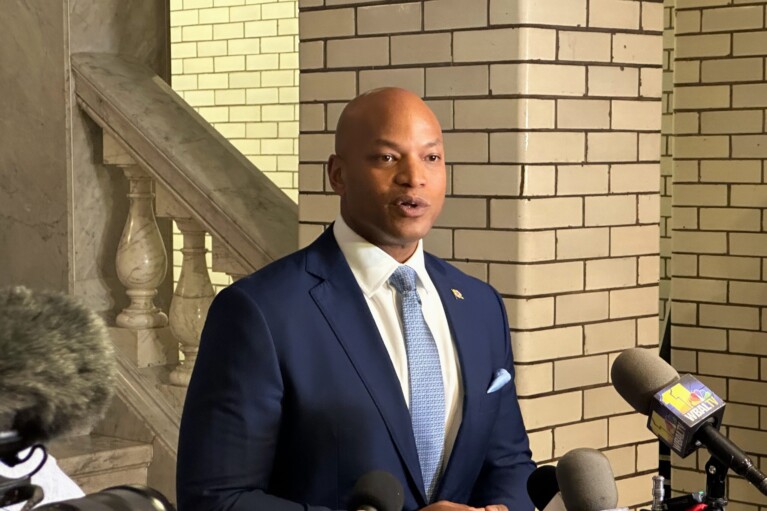Opinion: Hogan Urged to Sign Bill That Will Help Some Tenants Facing Eviction

By Zafar Shah
The writer is an attorney in the Human Right to Housing project at the Public Justice Center in Baltimore. He also co-leads the Renters United Maryland coalition.
It was almost 9 a.m. on a gray Thursday in December. Robin Moore had already been out to see her doctor. The good news: her cancer recovery was steady. The bad news: now she was running late for her eviction hearing. She seemed tense but relieved as we met for the first time right outside the courtroom.
Robin had a different recovery to tackle now.
Last summer, after finishing certifications meant to boost her career in construction, she found her job hunt going nowhere. Then, her housemates suddenly left her to pay the rent all on her own. In the fall, she applied for federal emergency rental assistance to help pay down more than $5,000 in rent debt. Meanwhile, she cobbled together money from friends and family to stave off a pending eviction.
But more cases were coming in November and December. Robin pleaded with the leasing staff, asking why they were taking her to court over and over while she was waiting for rental assistance? They simply shrugged in response.
My legal advice was not any more helpful. I have a decade’s experience defending clients against eviction, yet pandemic evictions have bewildered me.
After the American Rescue Plan Act upped Maryland’s eviction prevention funds to $800 million in March 2021, nearly 300,000 nonpayment of rent cases poured into state courts by year’s end. Certainly, some of those would-be evictors had misconceptions about eligibility for assistance and the process of obtaining it. My clients have needed me to help their landlords figure it out. But too often, I have found other landlords simply allergic to free money.
Before trial, I tried to explain to opposing counsel that Robin had a rental assistance application held up by the landlord’s lack of participation. “We don’t have to take that money,” she said dryly, pulling out a sheet with names and numbers for area charities that the landlord preferred over federal aid. This landlord operates 40 apartment and townhome communities throughout the region, including the 250-unit complex where Robin rents.
As counsel walked away, I noticed another tenant shaking her head in commiseration. She was in the same hole, it seemed. It’s not one that the Salvation Army can dig you out of.
I argued in trial that the court should not rule for the landlord after they had ignored the pending assistance application. But with a nod to opposing counsel, the judge concluded, “I can’t force them to take the money.”
Like countless other Maryland renters, Robin then faced all-but-certain eviction, despite having done exactly what she was told: timely apply for rent relief.
Officeholders and voters alike probably assume all landlords would move heaven and earth for rental assistance, and they probably would assume that Gov. Lawrence J. Hogan Jr. (R) or the Maryland General Assembly made sure that the court process would not upend distribution of relief funds.
In reality, Maryland lacks any policy to stop the significant minority of landlords who would rather put their tenants on the brink of eviction before they even return a call about a rental assistance application. Others prefer to refuse the money in pursuit of a new tenant and a higher rent.
To address this policy gap, Sen. Shelly Hettleman and Del. Vaughn Stewart introduced HB674/SB384 in this year’s Maryland General Assembly. The Senate bill passed in both chambers and now goes to the desk of the governor. The legislation will ensure that courts stay eviction proceedings “up to 35 days” when renters show that they await the resolution of a pending rental assistance application.
The reasoning is simple – if funds are available to cover a renter’s debt, and the program is working to make payment to the landlord, why not pause the eviction process? A stay reduces the threat of displacement and promotes effective pay down of rent debt.
SB384 would take effect as soon as Gov. Hogan signs it.
For Robin, the eviction order was not the end of her story.
She filed an appeal, and unexpectedly, the judge set an appeal bond that she could actually afford. Payment of the bond stayed the eviction while we awaited a new hearing. In the ensuing weeks, we continued to press for rental assistance. Eventually, the landlord accepted more than $7,000 in back-rent relief. The stay of eviction gave Robin and her landlord time to resolve the debt without an actual eviction.
Everyone should be so fortunate.
Although critics are correct, that nonpayment of rent cases are already delayed by COVID-19 safety measures in the state’s busiest courts, here’s the deal: eviction prevention takes time. Robin’s case is a testament to the value of putting eviction off and giving rental assistance a few extra weeks.
Robin spent that time on the verge of losing housing, but equally, losing hope for recovery.
According to recent Census Household Pulse Survey, 104,000 Maryland households are behind on rent. Nearly 80% of them are, like Robin, people of color. Like her, almost 85% are low-income earners and about half are jobless.
These Marylanders need Gov. Hogan to sign SB384 into law as soon as possible. With this limited but necessary step, our state moves closer to ensuring an equitable COVID-19 recovery for all, putting hundreds of millions in remaining American Rescue Plan Act dollars to work, paying property owners and keeping renters housed.




 Creative Commons Attribution
Creative Commons Attribution